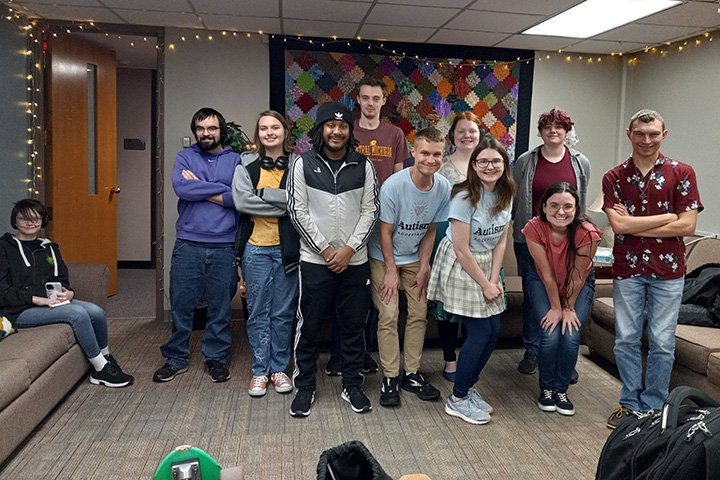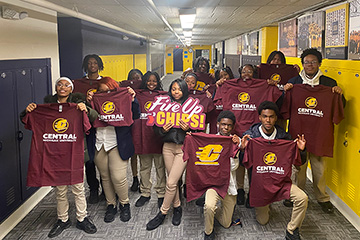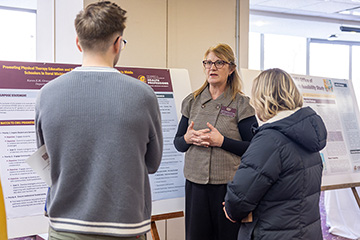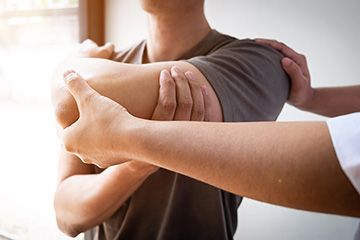Autism support group helps students feel seen
Student group drives changes to make campus more hospitable

Alexandria Alma came to her autism diagnosis at an older age than most people. While physicians can diagnose it as early as two years old, she was already a student at Central Michigan University studying biology.
She always knew she was different from other people. When she met an Autistic adult, she knew a diagnosis would answer questions she had about herself. It was difficult, but she eventually received her diagnosis.
She cried, she said. For most of her life, she’d thought of herself as defective.
“I realized that I wasn’t a broken, normal person,” she said. “I was a normal, Autistic person.”
Two other things related to autism were happening on campus at the time of her diagnosis. A group of students was forming the Autism Spectrum Club, and a group of faculty and staff members were forming their own support group called iInteract.
Annmarie Bates, a speech-language pathology master clinical educator with the Herbert H. and Grace A. Dow College of Health Professions, wanted to facilitate a peer-to-peer support group that paired neurotypical – a word to describe what is considered typical brain function – students with students on the autism spectrum.
Part of launching it was holding a focus group with Autistic students. Alma, already president of the Autism Spectrum Club, was one of the participants. What they learned was a bit of a shock.
“Everything we thought they’d want is nothing they wanted,” Bates said.
Alma participated in a similar program while in high school, except that she was in the role of a neurotypical peer. The relationship created a sort of power dynamic favoring the neurotypical peer, she said.
What they wanted, what she helped create in the Autism Spectrum Club, was a peer support group in which older Autistic students helped underclassmen navigate the difficult path to college success.
Only a third of Autistic students who start college successfully attain a degree, Alma said. She learned that while doing her Honors' capstone project on the topic of autism and academic success.
It’s not just a matter of removing barriers on the academic side, she said. There is a need to look at the social, emotional and mental health angles of autism. Sensory overload in classrooms is an issue, she said. It’s also more difficult for Autistic students to form bonds with professors. Job interviews are a nightmare situation.
Students with the Autism Spectrum Club have taken a leadership role on campus trying to make it more friendly to Autistic people. There are rooms where Autistic students overloaded with sensory stimuli can find focus and calm.
iInteract helps them achieve that, Bates said. The group comprises staff and faculty from across campus, and Alma is currently the student representative.
“It’s been a really cool collaboration,” she said.
It isn’t material things that Autistic students want, Alma said. They want to feel like a more present part of the CMU community.
“I think most of us just want to feel seen,” she said.
Two original club members are now at other Michigan higher learning institutions. They’ve connected back with Alma for help establishing support networks at their new schools and between schools, she said.
The goal is to help Autistic people feel as if they have people there for them.
“That way, no one has to go to college and feel alone,” she said.




